All products featured are independently chosen by us. However, SoundGuys may receive a commission on orders placed through its retail links. See our ethics statement.
Best headphones for sleeping
Published onNovember 28, 2024






Maybe you’re the type of person who needs to listen to music or a podcast to go to sleep. Perhaps you live with other people or have thin walls in your apartment; playing audio from a speaker while you sleep could be disruptive to others around you. Or maybe you need to get rid of the noises that keep you up at night to have a restful sleep. Wearing headphones to sleep is clearly the solution for those issues, but unless you’re a perfectly still back sleeper, they can be wildly uncomfortable or difficult to wear.
We’ve compiled a list of the best headphones for sleeping, but it’s important to note that every pick has a caveat. As far as we can tell, no company has made truly perfect headphones for sleeping for every kind of person.
Disclaimer
One major thing to note is that wearing headphones or earbuds while you sleep can be unsafe. Potential complications include ear infections and hearing loss because you're potentially putting pressure on something inside of your ear, and you don't really know how loud your audio is while you're unconscious. If you accidentally turn the volume up in your sleep and it doesn't wake you up, you could sustain noise-induced hearing loss from being exposed to loud sounds for an extended period of time. So know that there are potential dangers, and try your best to mitigate them by being responsible with your headphones.
Take SoundGuys’ quiz to find your best fit
Best wireless earbuds for sleeping: Ozlo Sleepbuds
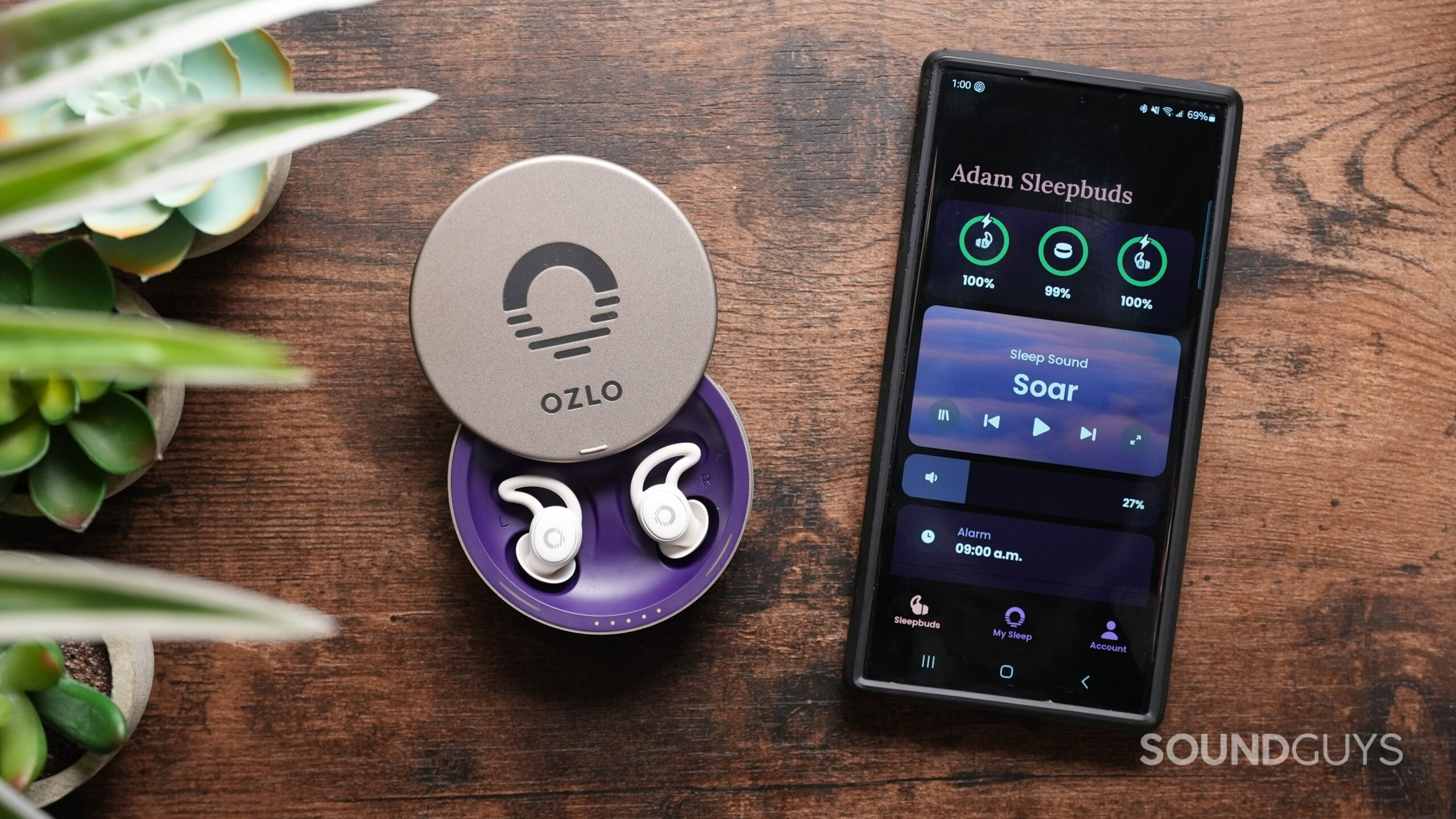
The Ozlo Sleepbuds are the current gold standard for sleep headphones, offering unmatched comfort and effective noise masking. Designed with side sleepers in mind, their compact build and flexible silicone ear wings ensure a secure, barely-there fit throughout the night, even if you toss and turn.
What sets these apart is their ability to play your own audio, a rare feature in sleep buds. They also have a good library of white noise and ambient sounds. With a 9-hour battery life and a case that holds four days’ worth of charge, they’re as reliable as they are comfortable. While pricey at $299, they deliver premium sleep performance worth the investment for those prioritizing rest.

Best budget wireless earbuds for sleeping: Anker Soundcore Sleep A20
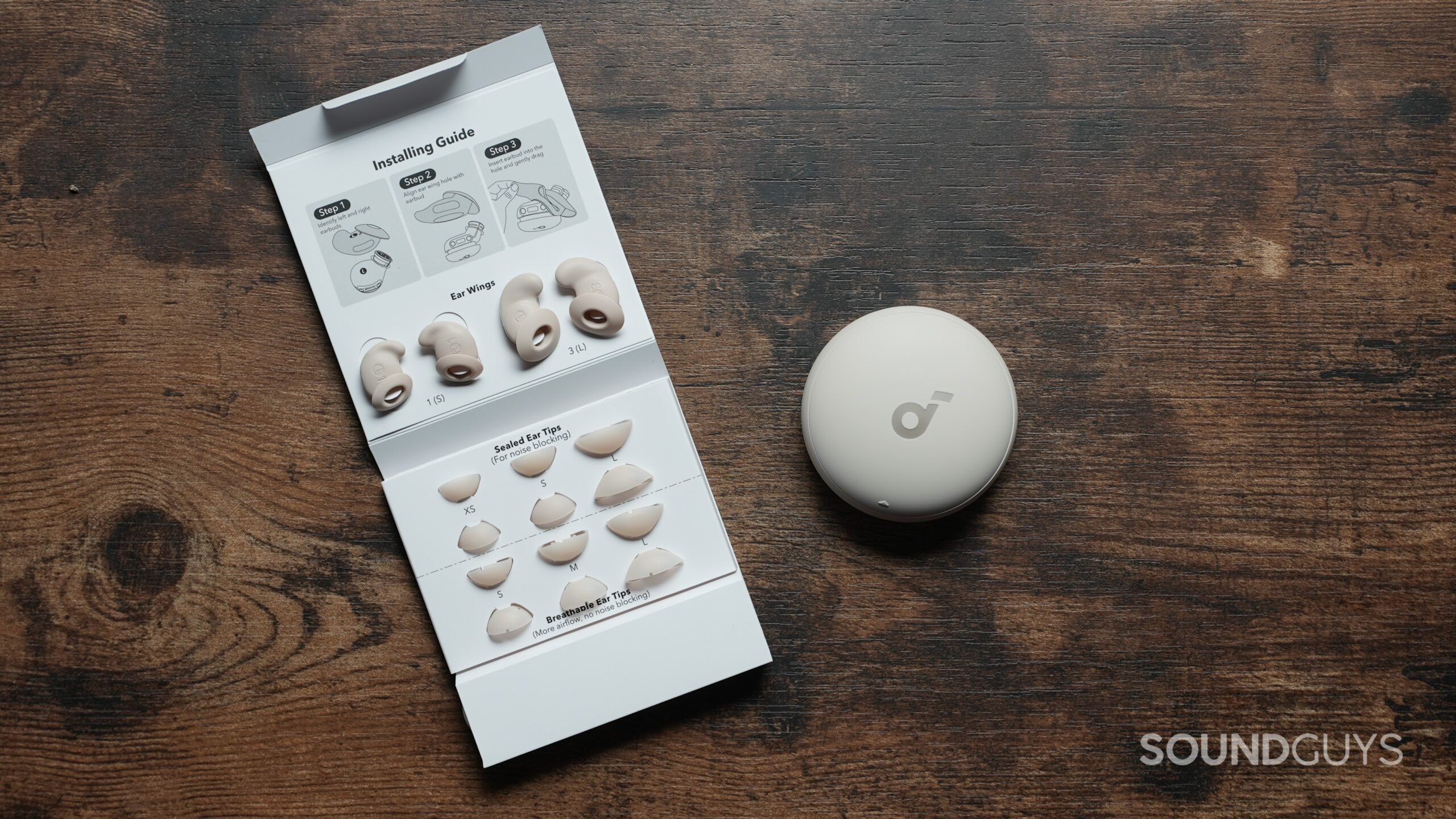
For those seeking a budget-friendly option without sacrificing comfort, the Anker Soundcore Sleep A20 earbuds deliver where it counts. With a customizable fit featuring multiple ear tip and wing sizes, these earbuds stay secure and comfortable throughout the night, even for side sleepers.
Priced at $149.99, the Sleep A20 offers impressive battery life—up to 14 hours per charge with an additional 80 hours in the case. While the sound library and noise isolation aren’t perfect, these earbuds provide a reliable and affordable solution for light sleepers seeking peace in a noisy environment.

Best over-ear headphones for sleeping: Edifier W820NB Plus
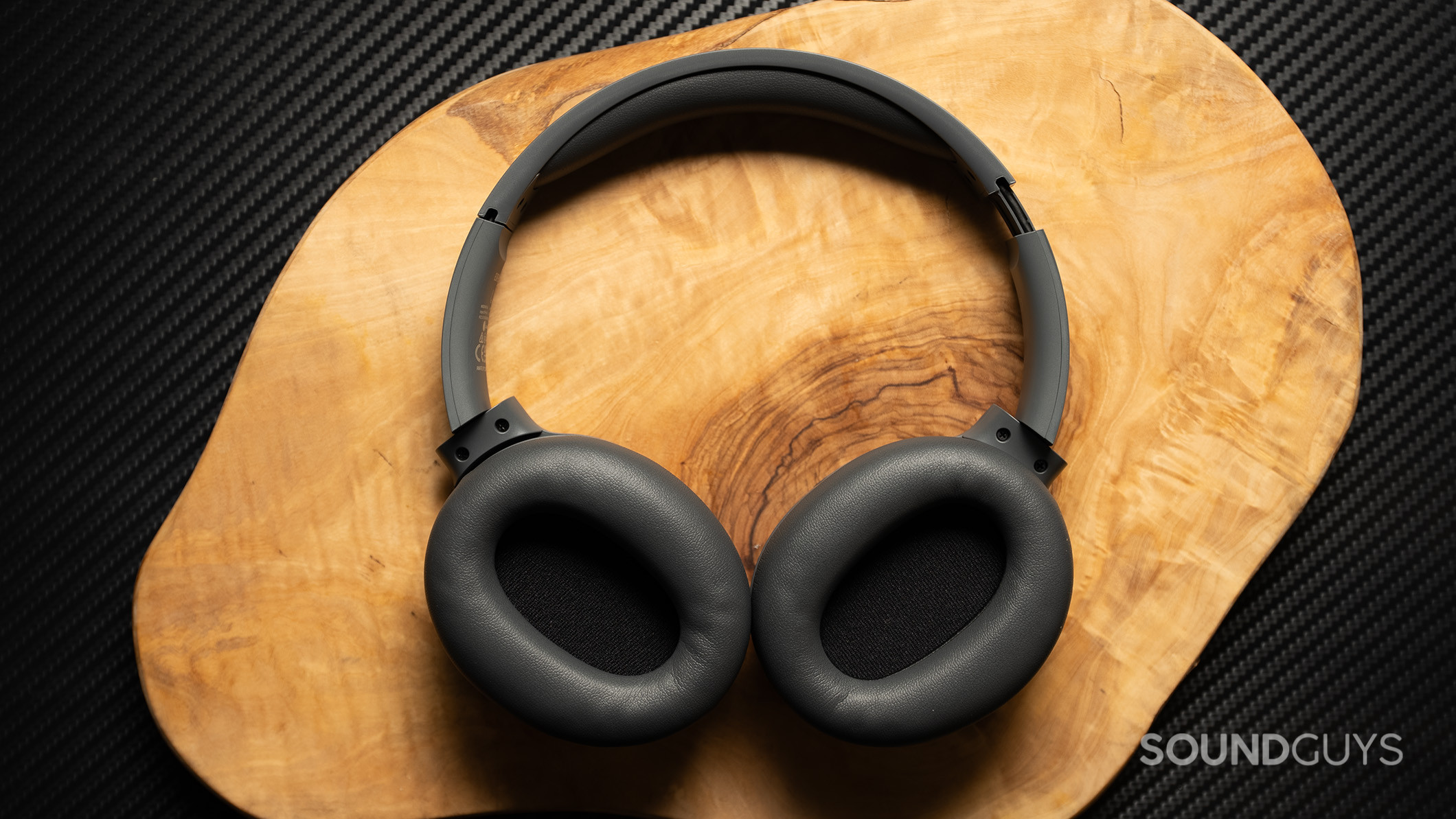
If you want a budget-friendly and comfortable pair of headphones you can wear through the night, the Edifier W820NB Plus is for you. They may look simple and low profile, but the roomy ear cups and cushy headband have good padding for a comfortable fit and create a quality seal around the ear.
They have pretty good noise canceling for the price, are especially effective at blocking out higher frequencies, and have an excellent sound that most listeners will enjoy. Of course, headphones are best for back sleepers, but they won’t hurt if you roll on your pillow a bit, either. For $80, you can really go wrong with this basic pair of headphones for your bed or casual listening.

Best wired earbuds for sleeping: Moondrop Chu II
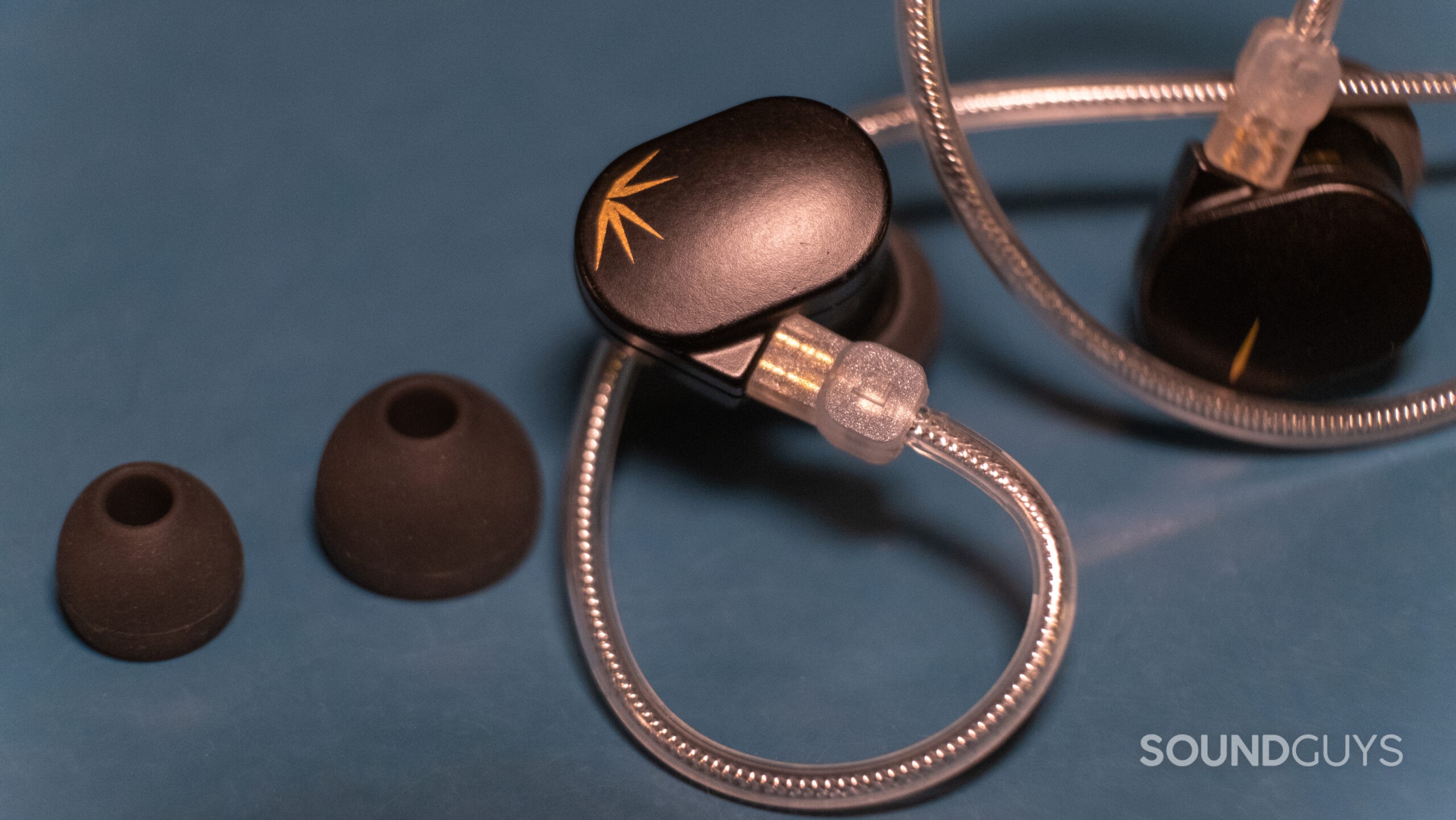
For under $20, the Moondrop Chu II is a comfortable, fairly low-profile pair of wired earbuds with excellent isolation and sound quality. It hooks around the back of your ear for a secure fit, so it’s less likely to dislodge in your sleep. It connects using a 3.5mm TRRS cable, so you’ll need a headphone jack for these earbuds.
The Moondrop Chu II has an in-line mic and control module on the wires, so you won’t have any accidental misfires overnight from moving your head. The biggest problem this pair of earbuds presents is the pressure you might put on your ears if you’re a side sleeper. There’s also the added potential wrinkle of wearing wired earbuds while you’re asleep and rolling over. However, the cable is removable if you find it getting in the way and tangled in your bed sheets.


Side sleepers should check out the Perytong Sleep wireless headphones
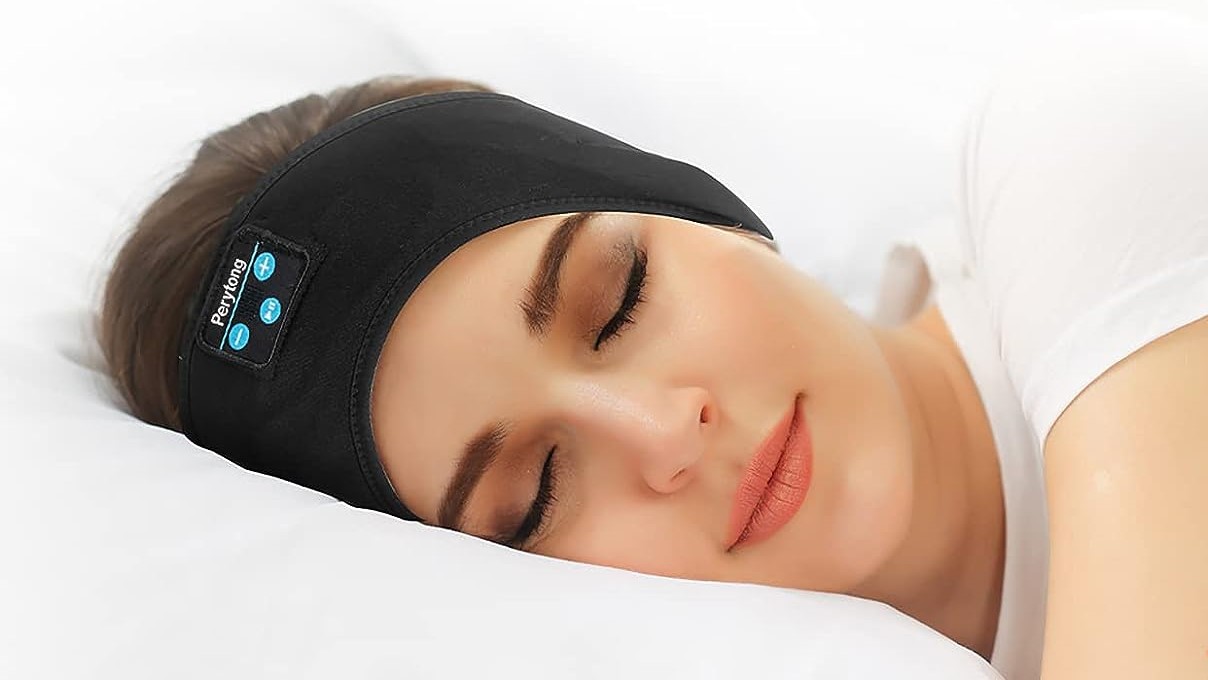
If you’re interested in a headband headphone design, the Perytong Sleep is a great, budget-friendly option in this field. The headphones wrap around your head, and there are speakers embedded in the sections that rest over your ears. The fabric is made of soft, machine-washable, breathable, sweat-absorbent material. It also features detachable on-ear headphones that fit comfortably for those of us who toss and turn or sleep on our sides.
The Perytong Sleep headband has a reasonable 10-hour battery life, so it’ll last you through the nights before having to charge. It also comes in 16 color options and works well for listening to music while jogging, doing yoga, or other activities during the day.
One caveat with this headband is that it may not block out sounds very well since there is no noise cancelation. So, if you’re bothered by bumps in the night or your neighbors partying too late, this won’t do you much good.

How is the Apple AirPods Pro (2nd generation) for sleeping?
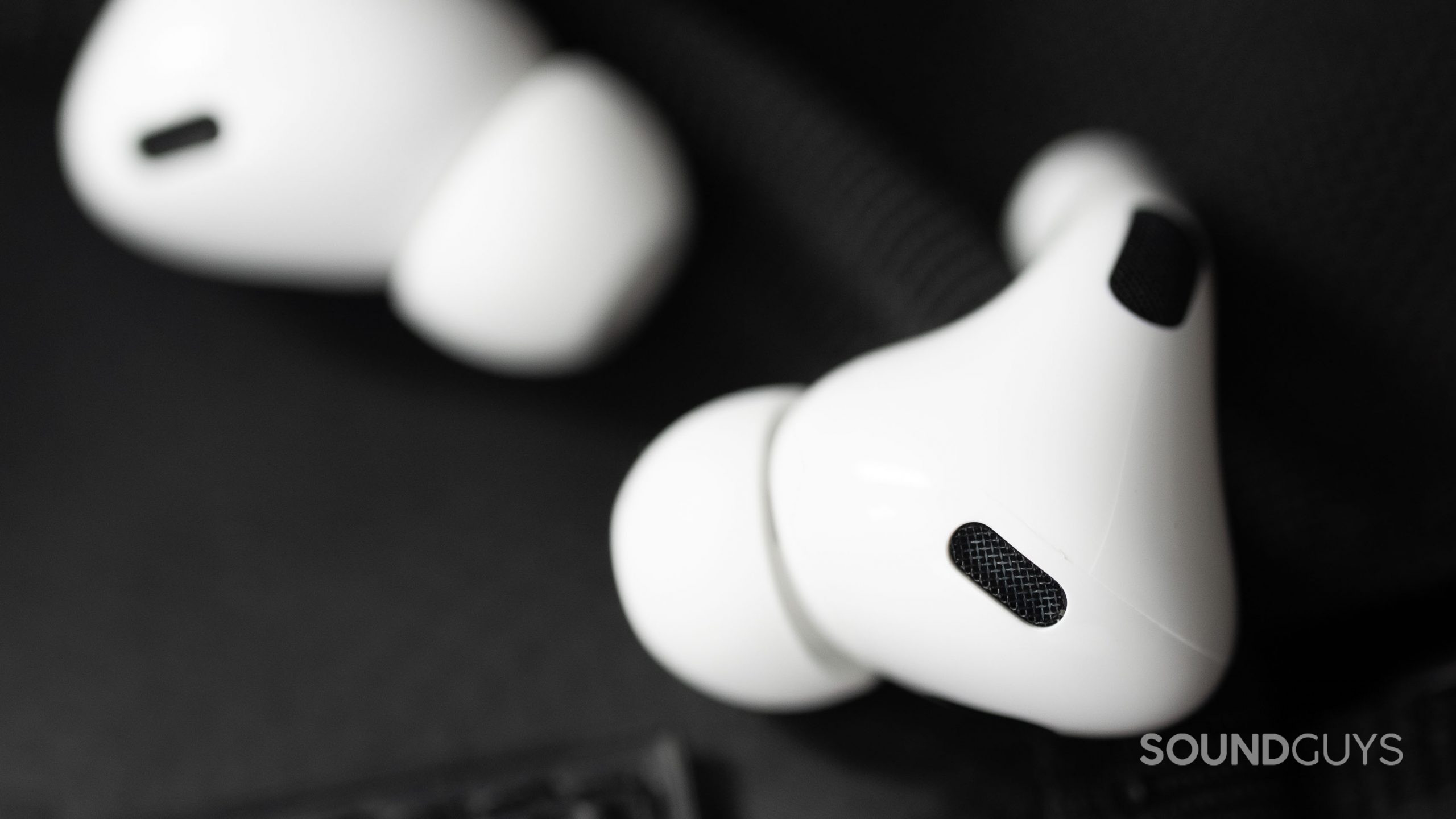
Many people can attest to having fallen asleep wearing their Apple AirPods Pro, whether in bed, on the bus, or on a plane. It’s a popular pair of earbuds, so it’s bound to happen. The consensus seems to be that falling asleep while wearing the AirPods Pro is fairly comfortable, but not if you put pressure on the earbuds by sleeping on your side. The second generation of the AirPods Pro also comes with another size of ear tips, so you can choose from more fit options to stay comfortable. It also has great isolation and noise canceling, so you can quietly enjoy your rest.
You can sleep comfortably wearing a pair of AirPods Pro by wearing only a single earbud if you’re sleeping on one side or both earbuds if you sleep on your back or upright. Just make sure you don’t accidentally fire off gestures in your sleep; you don’t want to max out your volume without realizing it. A major caveat here is the battery life, which is only about six hours, so your AirPods Pro will die before you wake up.
If you want to see how the AirPods Pro compares to one of our notable mentions, read our complete article on the Apple AirPods Pro (2nd gen) vs Bose QuietComfort Earbuds II.

The best headphones and earbuds for sleeping: Notable mentions
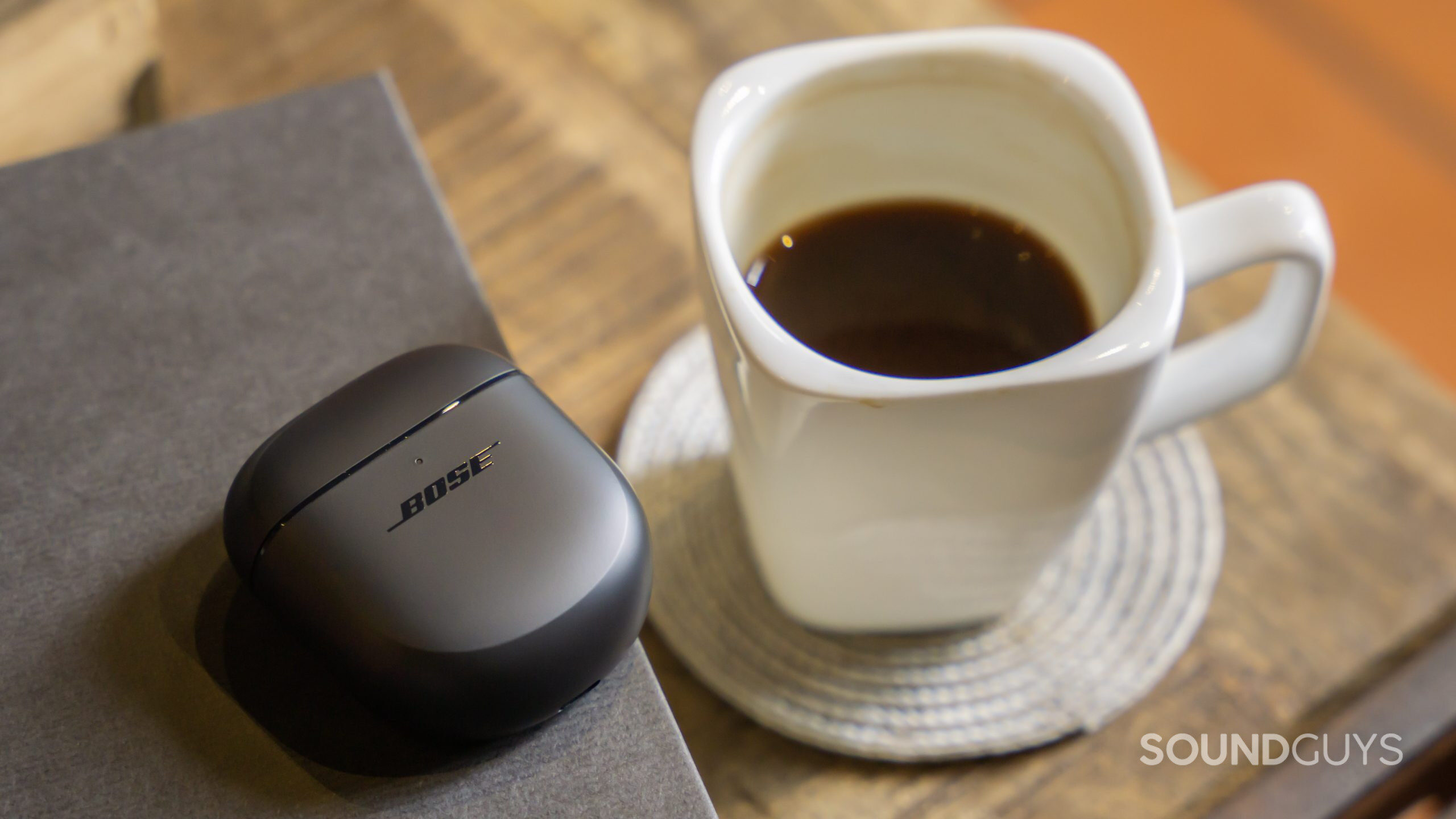
- Bose QuietComfort 35 II ($374 at Amazon): With a battery life of over 20 hours, back sleepers can easily wear these and drift off with the noise canceling.
- Sony WF-1000XM4 earbuds($278 at Amazon): The Sony WF-1000XM4 also has great noise canceling, comfy memory foam ear tips, and are more affordable than the latest models.
- Samsung Galaxy Buds 2 Pro $179 at Amazon): While the battery life of 4 hours and 50 minutes isn’t great, the Galaxy Buds 2 Pro is super comfortable. This is another great pair of earbuds that will take you through your commute naps with great noise canceling. It’s ideal for Samsung phone users since they will get the most out of these earbuds.
- Google Pixel Buds Pro ($199 at Amazon): The 7-hour battery life won’t quite get you through a whole night of sleep, but the fairly low profile of the Pixel Buds Pro could be good for sleeping, as well as the good noise canceling.
- Bose QuietComfort Earbuds II ($249 at Amazon): Another good transit or plane sleeping companion, the Bose QuietComfort Earbuds II have really good ANC and a battery life of 7 hours, 15 minutes.
- Sony WH-1000XM5 headphones ($387 at Amazon): In the same vein as the rest of the notable mentions, the Sony WH-1000XM5 is ideal for sleeping upright or on your back. It has top-of-the-line noise canceling, sounds great, and has a long battery life of just under 32 hours.
- Sony WH-1000XM4 headphones (
What you should know about the best headphones for sleeping
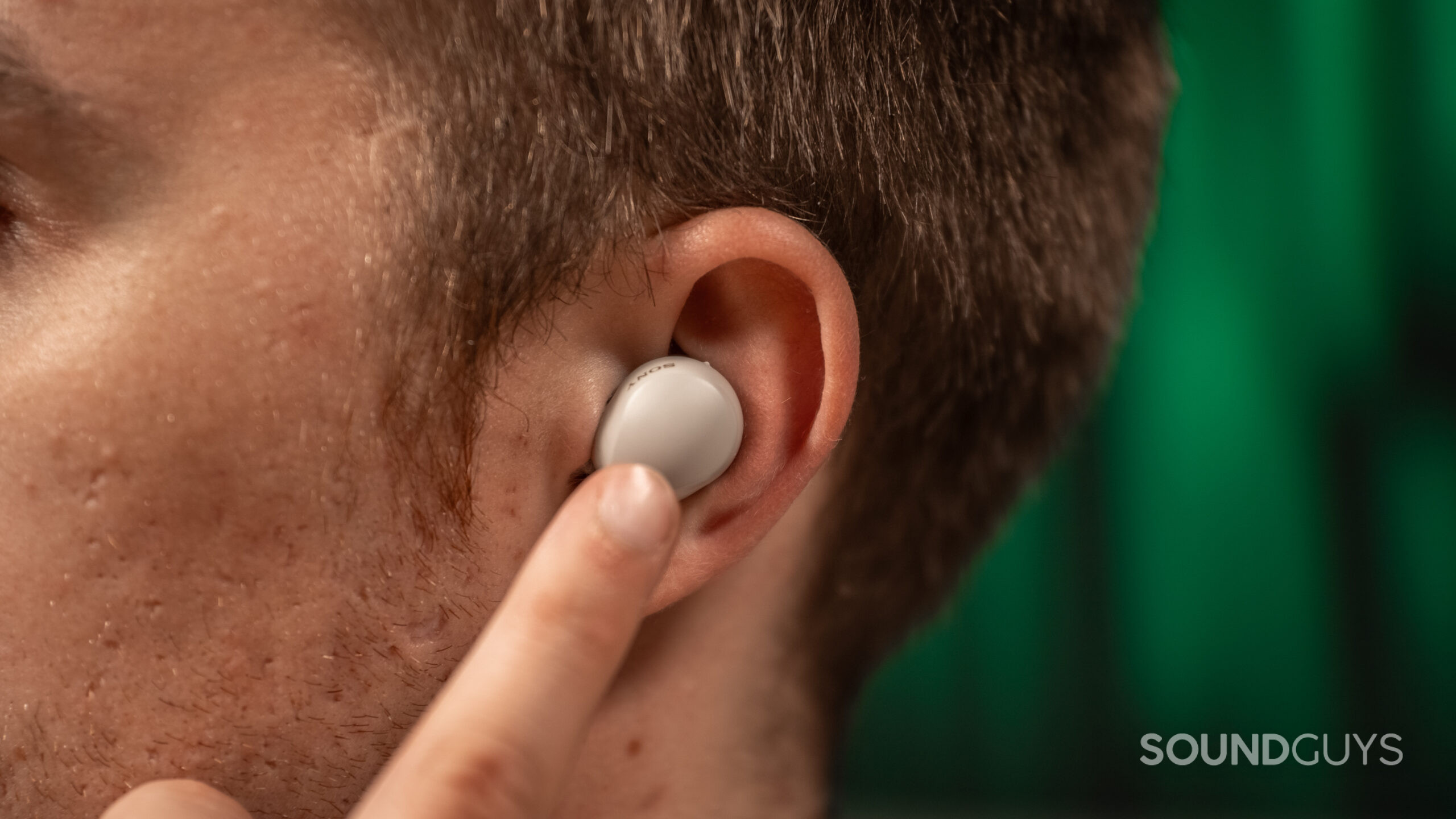
Low-profile earbuds are best for side sleepers
When looking for earbuds to sleep in, you want to make sure they don’t stick out of your ears too much so you can sleep in any position without pain. If you’re looking for earbuds for sleeping that double as everyday earbuds, finding something with a low profile is key. If you’re looking for headphones for only sleep use, headband-style headphones for sleeping are comfortable in any position.
Back sleepers have more options
Sleeping on your back obviously makes this easier since you don’t have to worry so much about your earbuds or headphones hurting your ears while you sleep. You can get away with pretty much any wireless earbuds or headphones if you’re a back sleeper, as long as it has ample battery life (over 8 hours) and fits comfortably on your ears. The world is your oyster, as you can consider more affordable headphones or top-of-the-line noise canceling earbuds.
Battery life should last you all night
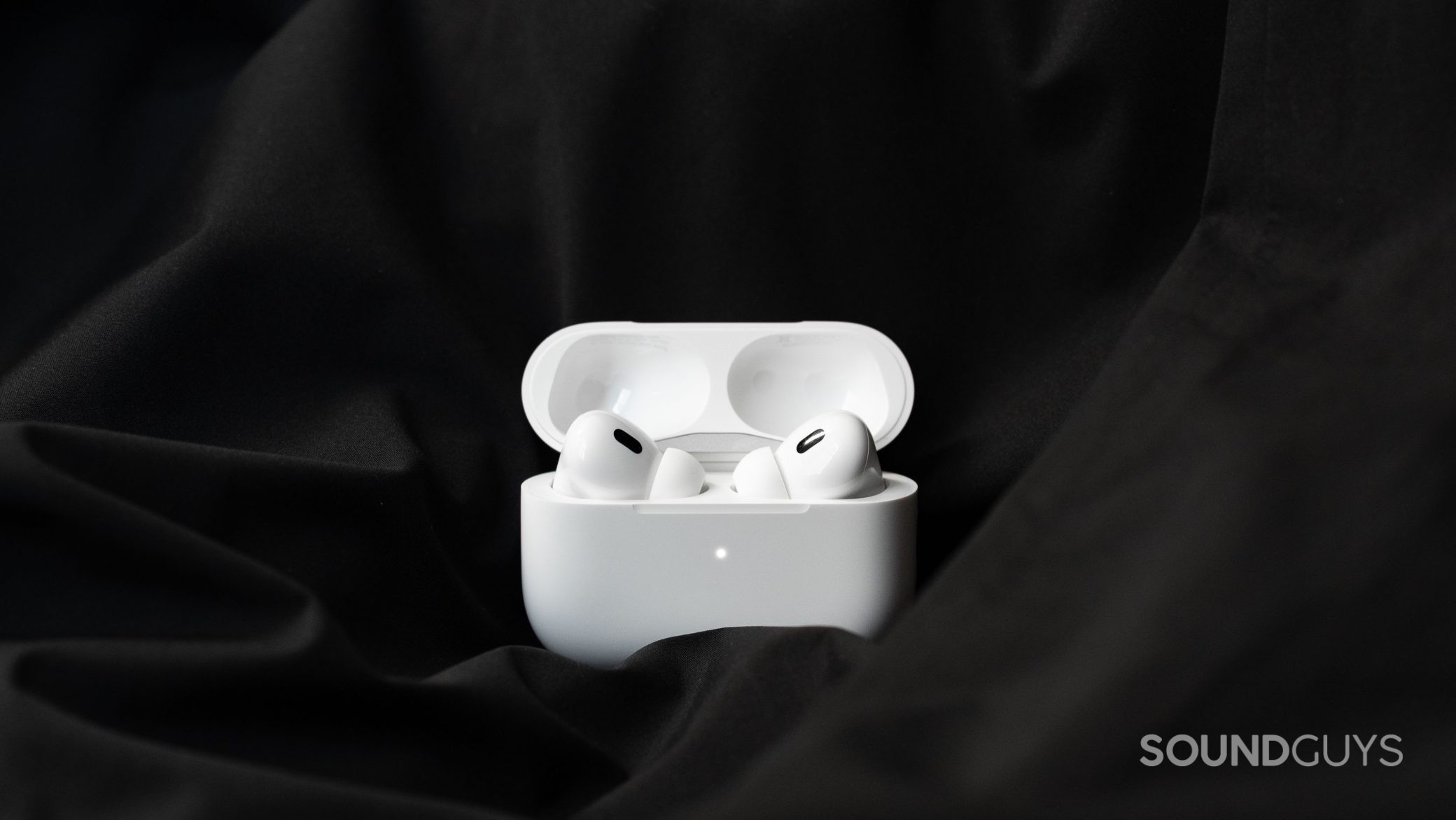
You can wear wired headphones to bed, and our top pick is, indeed, a pair of wired earbuds. But if getting tangled in wires is a concern, wireless headphones are the way to go.
The caveat is that you don’t want your headphones dying on you while you’re sleeping unless you just need headphones to lull you to sleep for a short time. On average, adults should get at least seven hours of sleep a night, so your headphones should accommodate that and more. Some people take a while to fall asleep and need an hour of buffer time with their headphone battery life, and many people need more than just seven hours of sleep. Aim for headphones with a battery life of 10 hours at least since that gives you enough time to fall asleep and can accommodate people who sleep closer to nine hours a night.
Mono and stereo listening
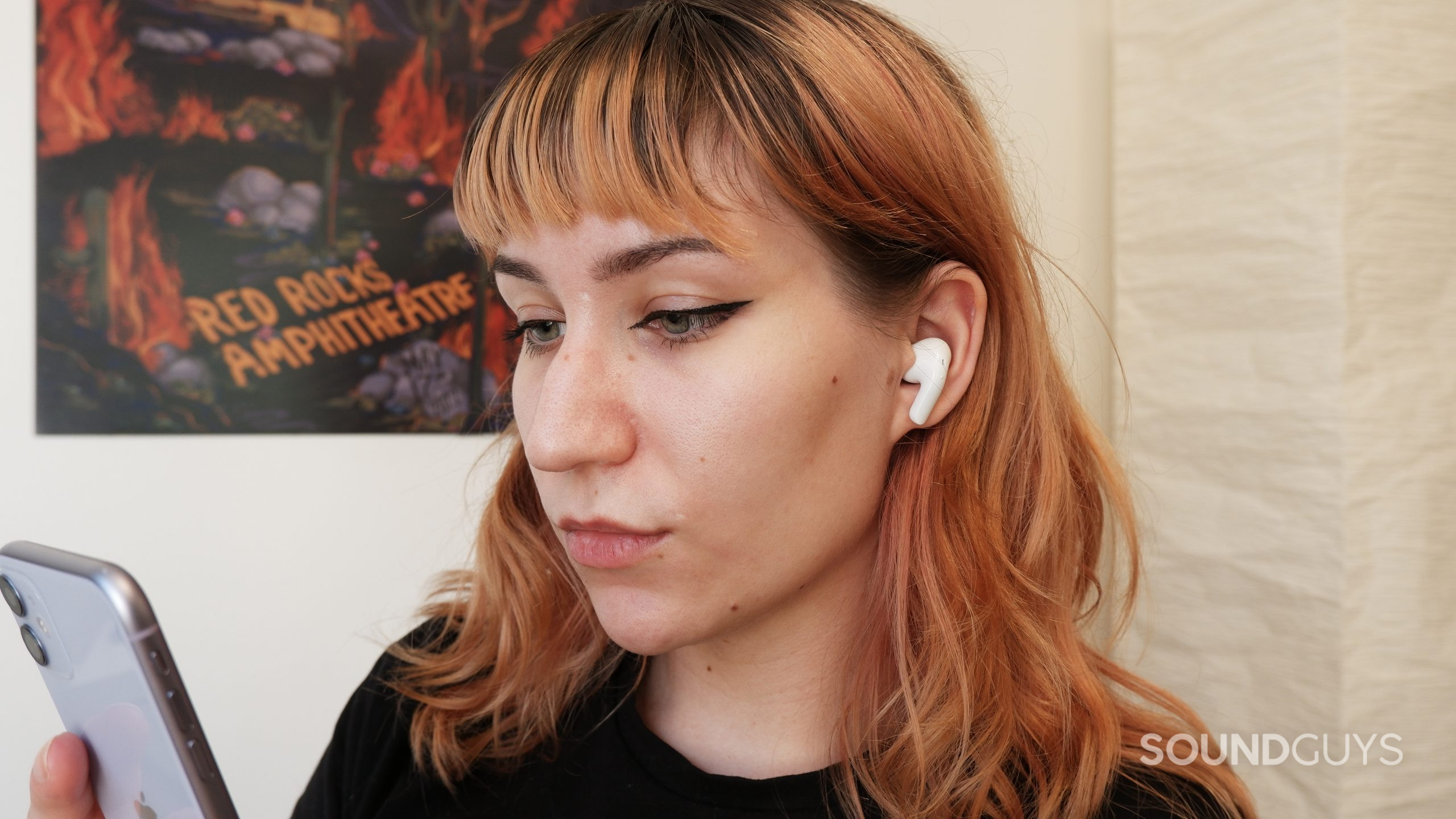
As a side sleeper, when I’ve slept in earbuds, I take out one of the earbuds so I can rest comfortably on the pillow while listening to music through one ear. If this is what you want to do with your earbuds, it’s a good idea to change your audio settings to mono, so you’re not just getting one channel of audio through your earbuds while you sleep. You can do this by going into the audio section of your phone’s accessibility settings. If you never move your head around at night, some earbuds have a single earbud listening mode that allows you to have mono sound through one earbud.
Noise canceling vs isolation
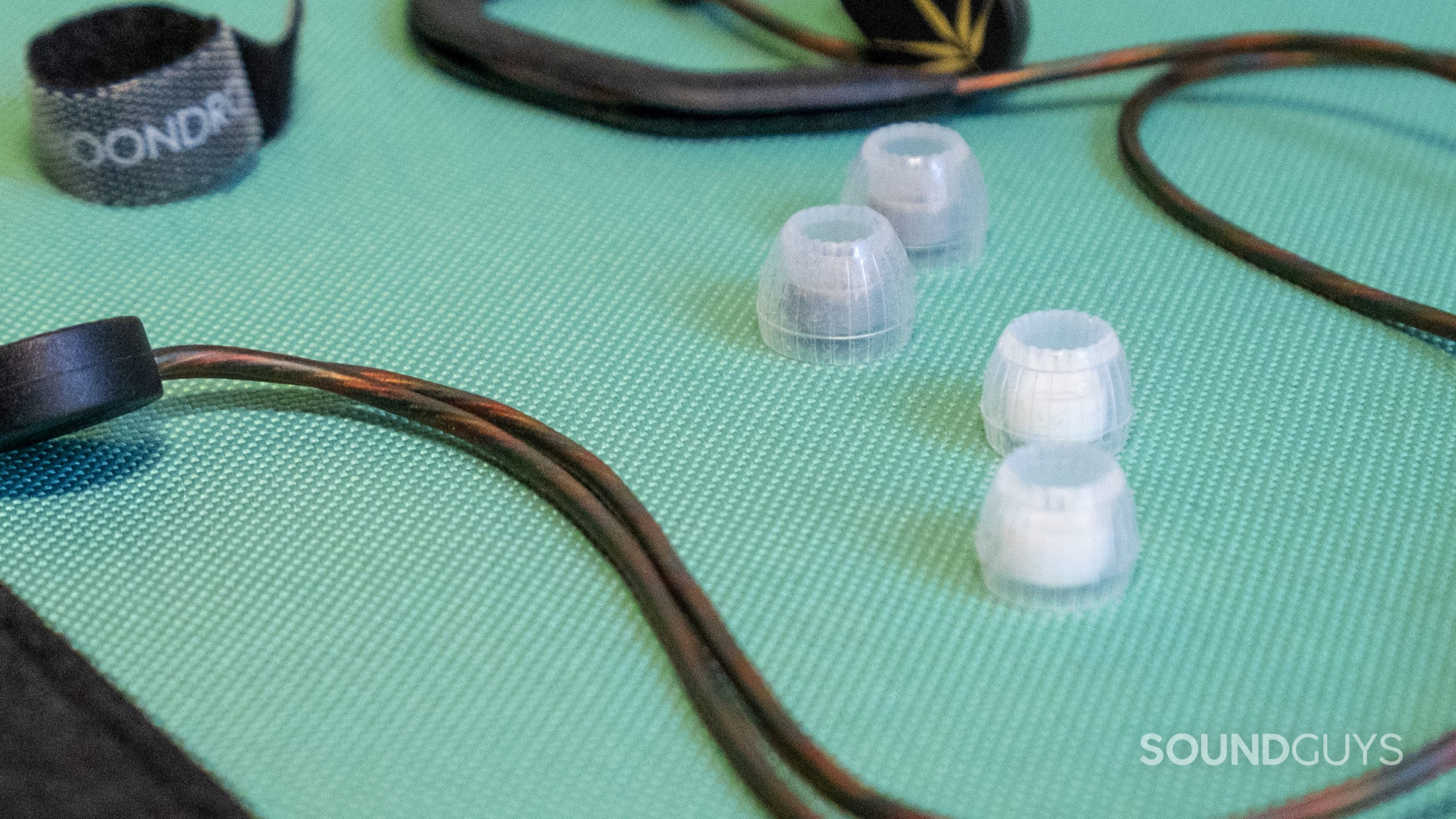
Passive isolation and ANC both keep sounds out of your ears to ensure a restful sleep, but they work differently. Passive isolation uses a physical barrier to keep sound out, so the fit of your ear tips or the seal of your headphones matters a lot. ANC cancels out noise using inverse frequencies to what’s going on around you—it will keep out droning noises your headphones can pick up and cancel out. Still, incidental noises are muffled better by passive isolation. The best way to keep sound out is with headphones or earbuds that have really good passive isolation, along with ANC.
How we test the best headphones for sleeping
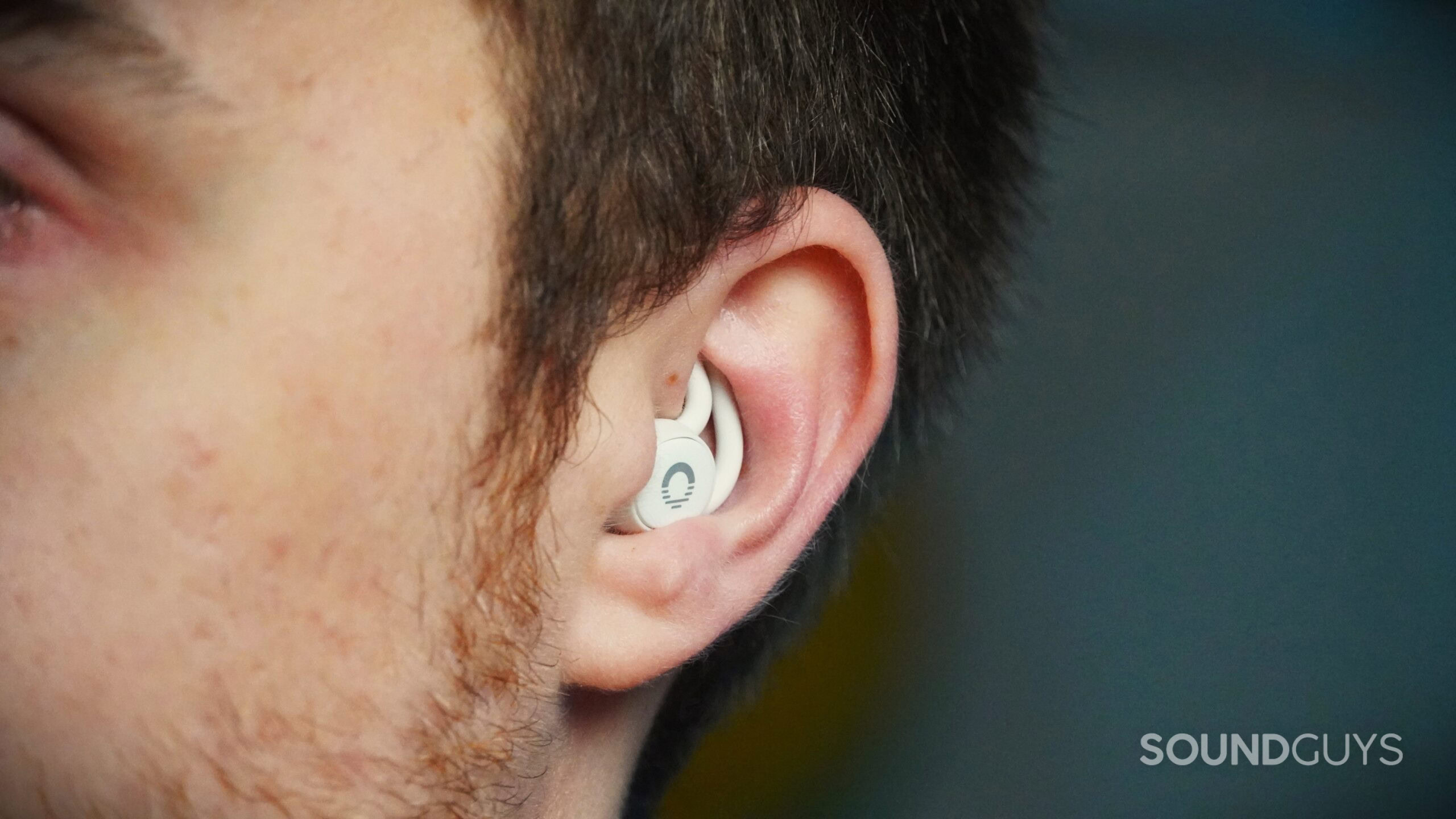
At SoundGuys, we perform objective tests to measure things like frequency response, isolation, microphone quality, and more. We use a Bruel & Kjaer 5128 head and torso simulator (HATS) with an anatomically realistic ear canal and outer ear. After collecting all of this data, we score each product through various objective and subjective measures. When it comes to things we aren’t able to test hands-on, we do diligent research in order to find the products that best fit your needs.
How we choose the best headphones for sleeping
Based on our objective testing and uses of the products, we choose which products fit each criterion a person might need to fulfill. Our team confers with one another regarding the best products for a given category before presenting our list to you. It’s not over after we hit “publish,” though. We treat every article as a living document and update it as new and worthy products come out.
Why you should trust SoundGuys
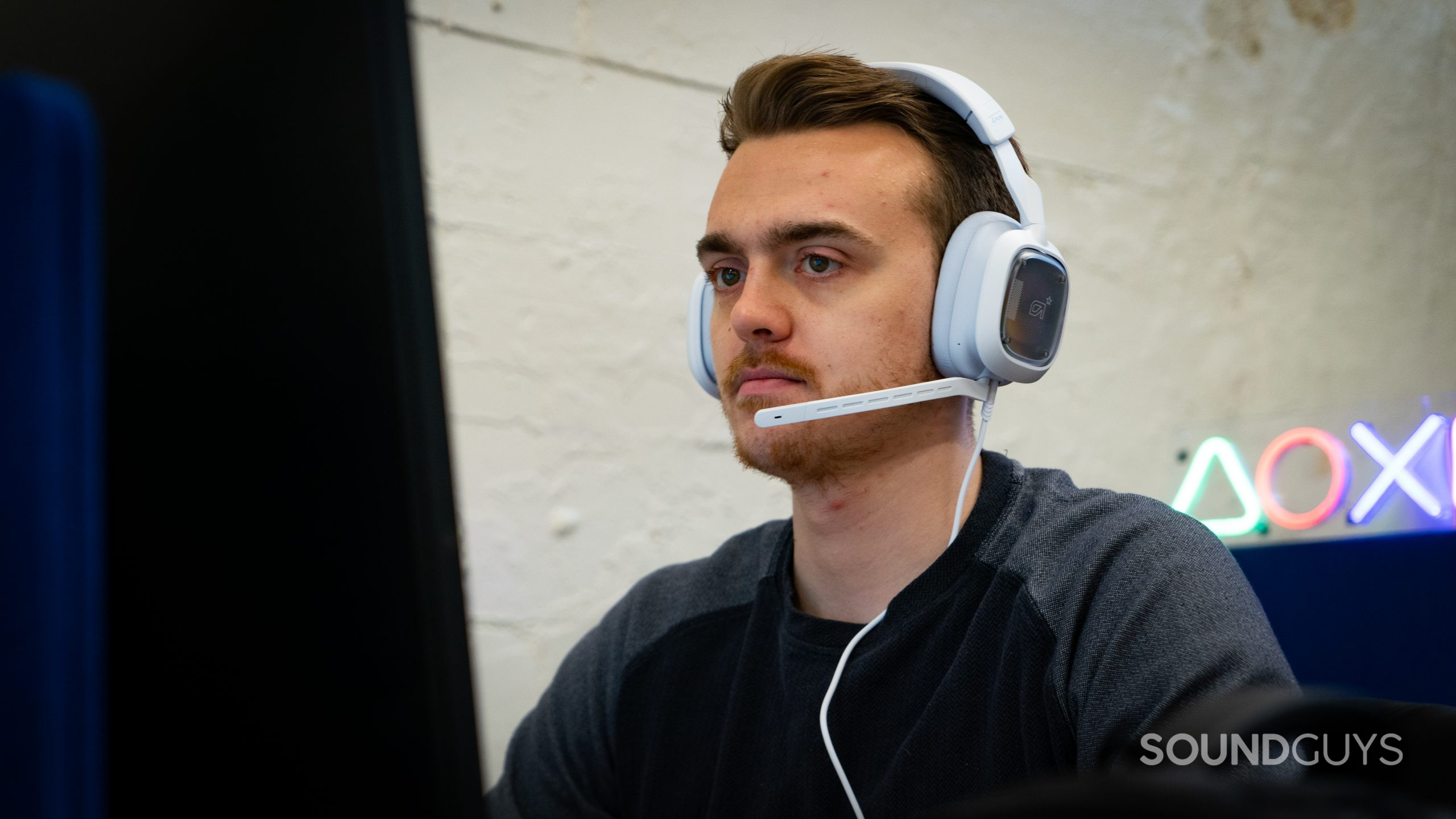
Each writer at SoundGuys has accumulated years of experience reporting on the consumer audio market, and our staff adheres to a strict ethics policy. Our team doesn’t directly sell any products or have any personal financial stake in whether you make a purchase. We pride ourselves on transparently outlining objective facts while accounting for the subjective experience to contextualize an audio product’s performance. When we do misspeak, we correct and own up to it.
- November 28, 2024: We added the Ozlo SleepBuds to the top picks.
- June 2, 2024: We added the Anker Soundcore Sleep A20 to the top picks.
Frequently asked questions
Ear plugs are a great option if you just want to block out noises while you sleep. Foam ear plugs are affordable and easy to use, and you can also find reusable silicone ear plugs.
A pair of headband-style headphones like the SleepPhones Wireless is probably the best option for people who tend to toss and turn since earbuds might easily become dislodged and over-ear headphones will get in your way.
Yes, it’s generally safe to sleep with your headphones, provided they are comfortable and do not pose a risk of causing physical harm (such as causing pressure sores or raising your volume levels too high). However, it’s important to ensure the volume is kept at a safe level to avoid potential hearing damage.
No, noise-canceling headphones are not inherently bad for sleep. In fact, they can help create a quieter environment, which can be beneficial for sleep, especially in noisy environments. However, comfort is key, as poorly fitting headphones could disrupt your sleep or cause discomfort.
The Moondrop Chu earbuds excel as wired sleep companions with their secure fit, superior sound quality, and comfort, all at an affordable price.
If earbuds cause discomfort, you might want to consider a sleep headband. The Perytong Sleep Headphones, for instance, feature thin, flat speakers embedded in a soft, breathable headband. They provide a comfortable, pain-free alternative to traditional earbuds or the bulkiness of headphones, making them a great choice for side sleepers or those who find earbuds uncomfortable over time.
Both headphones and earbuds have their pros and cons for sleeping. Headphones typically offer superior sound quality and noise isolation, but they may not be comfortable for side sleepers due to their size. Earbuds are less intrusive and potentially more comfortable for various sleep positions, but they may not offer the same level of noise cancelation and can sometimes fall out during sleep. As a third option, there are also specially designed sleep headphones with a headband design. These are typically flat and soft, making them comfortable for all sleep positions, and they won’t fall out or apply too much pressure to your ears. The best choice ultimately depends on your personal comfort and sleep habits.